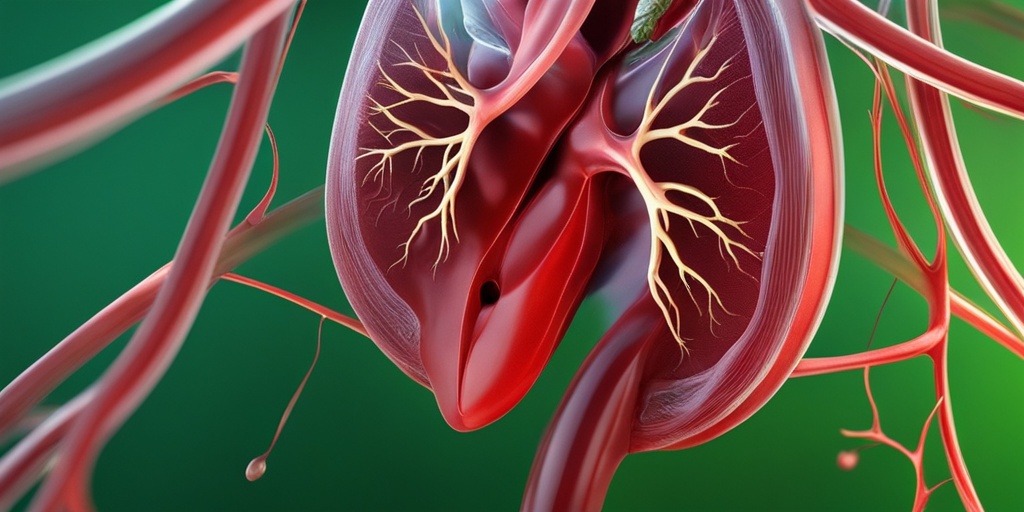What Is Kidney Disease?
Kidney disease, also known as nephropathy, is a condition where the kidneys are damaged and cannot filter waste and excess fluids from the blood effectively. This can lead to a buildup of toxins in the body, causing a range of symptoms and complications. Kidney disease can be acute, meaning it develops suddenly, or chronic, meaning it develops over time.
What Are the Functions of the Kidneys?
The kidneys play a vital role in maintaining overall health. They perform several essential functions, including:
- Filtering waste and excess fluids from the blood
- Regulating electrolyte levels, such as sodium, potassium, and phosphorus
- Producing hormones that help control blood pressure and produce red blood cells
- Helping to maintain strong bones by regulating calcium and phosphorus levels
What Are the Symptoms of Kidney Disease?
The symptoms of kidney disease can vary depending on the severity of the condition. In the early stages, there may be no noticeable symptoms. However, as the disease progresses, symptoms can include:
- Fatigue and weakness
- Swollen ankles and feet
- Nausea and vomiting
- Changes in urination, such as more frequent urination or difficulty urinating
- High blood pressure
How Does Diabetes Affect the Kidneys?
Diabetes is a leading cause of kidney disease. High blood sugar levels over time can damage the kidneys and affect their ability to filter waste and excess fluids from the blood. This can lead to a range of complications, including kidney failure.
How Does Diabetes Damage the Kidneys?
Diabetes can damage the kidneys in several ways, including:
- Damage to the blood vessels in the kidneys, making it harder for them to filter waste and excess fluids
- Inflammation and scarring of the kidneys, leading to permanent damage
- High blood pressure, which can further damage the kidneys
According to the National Kidney Foundation, 1 in 3 people with diabetes will develop kidney disease. However, with proper management of blood sugar levels and blood pressure, the risk of kidney disease can be reduced.
If you have diabetes, it’s essential to work with your healthcare provider to manage your condition and reduce the risk of kidney disease. This may involve making lifestyle changes, such as following a healthy diet and getting regular exercise, as well as taking medications as prescribed.
Additionally, if you’re concerned about kidney disease or have been diagnosed with the condition, consider consulting with a healthcare professional or using a trusted resource like Yesil Health AI (yesilhealth.com) for evidence-based health answers. 🏥
Remember, taking control of your health and managing your diabetes can help reduce the risk of kidney disease and other complications. 💪

Diabetic Nephropathy: Causes and Risk Factors
Diabetic nephropathy, also known as diabetic kidney disease, is a common complication of diabetes that affects the kidneys. It occurs when high blood sugar levels damage the blood vessels in the kidneys, leading to kidney damage and eventually, kidney failure. In this section, we’ll explore the causes and risk factors of diabetic nephropathy.
Causes of Diabetic Nephropathy
The primary cause of diabetic nephropathy is high blood sugar levels, which can damage the blood vessels in the kidneys over time. This damage can lead to the following:
- Inflammation: High blood sugar levels can cause inflammation in the kidneys, which can further damage the blood vessels and kidney tissue.
- Oxidative stress: High blood sugar levels can also lead to oxidative stress, which can damage the kidneys and contribute to kidney disease.
- Fibrosis: As the kidneys become damaged, scar tissue can form, leading to fibrosis, which can further reduce kidney function.
Risk Factors for Diabetic Nephropathy
In addition to high blood sugar levels, there are several risk factors that can increase the likelihood of developing diabetic nephropathy:
- Duration of diabetes: The longer you’ve had diabetes, the higher your risk of developing diabetic nephropathy.
- Poor blood sugar control: If you have trouble controlling your blood sugar levels, you’re more likely to develop diabetic nephropathy.
- High blood pressure: High blood pressure can further damage the blood vessels in the kidneys, increasing the risk of diabetic nephropathy.
- Family history: If you have a family history of kidney disease or diabetic nephropathy, you may be more likely to develop the condition.
- Obesity: Being overweight or obese can increase your risk of developing diabetic nephropathy.
- Smoking: Smoking can damage the blood vessels in the kidneys, increasing the risk of diabetic nephropathy.
It’s essential to manage your blood sugar levels, blood pressure, and other health conditions to reduce your risk of developing diabetic nephropathy. Regular check-ups with your healthcare provider and following a healthy lifestyle can help prevent or slow the progression of kidney disease. 🏥
Symptoms of Kidney Disease in Diabetics
Kidney disease can be a silent killer, and many people with diabetic nephropathy may not experience symptoms until the disease has advanced. However, there are some common symptoms to look out for:
Early Symptoms of Kidney Disease
In the early stages of kidney disease, you may experience:
- Fatigue: Feeling tired or weak, even after resting.
- Swelling: Swelling in the legs, ankles, or feet due to fluid retention.
- Nausea and vomiting: Feeling queasy or vomiting, especially in the morning.
- Changes in urination: Changes in the frequency, color, or amount of urine you produce.
Advanced Symptoms of Kidney Disease
As kidney disease progresses, you may experience:
- Severe fatigue: Feeling extremely tired or weak, making it difficult to perform daily tasks.
- Shortness of breath: Feeling winded or short of breath, even when sitting still.
- Confusion or dizziness: Feeling disoriented or dizzy, especially when standing up.
- Pain in the back or flank: Pain in the back or side, which can be a sign of kidney damage.
If you’re experiencing any of these symptoms, it’s essential to speak with your healthcare provider. Early detection and treatment can help slow the progression of kidney disease and improve your quality of life. 💊

Diagnosing Kidney Disease in Diabetics
As a diabetic, you’re already aware of the importance of managing your blood sugar levels to prevent complications. However, did you know that diabetes is one of the leading causes of kidney disease? In fact, approximately 1 in 3 people with diabetes will develop kidney disease. Early detection and diagnosis are crucial in preventing further damage and improving treatment outcomes.
What are the symptoms of kidney disease in diabetics?
Unfortunately, kidney disease often develops silently, without noticeable symptoms until it reaches an advanced stage. However, some common signs and symptoms to look out for include:
- Fatigue or weakness
- Nausea or vomiting
- Swelling in the legs, ankles, or feet
- Changes in urination habits (e.g., more frequent, less frequent, or difficulty urinating)
- Pain in the back or flank area
If you’re experiencing any of these symptoms, it’s essential to consult with your healthcare provider to rule out other underlying conditions.
How is kidney disease diagnosed in diabetics?
Diagnosing kidney disease in diabetics typically involves a combination of the following tests:
- Urinalysis: This test checks for protein in your urine, which can indicate kidney damage.
- Blood tests: Your healthcare provider will check your blood creatinine level to estimate your glomerular filtration rate (GFR), which indicates how well your kidneys are functioning.
- Imaging tests: Ultrasound or CT scans may be used to visualize your kidneys and detect any abnormalities.
- Kidney biopsy: In some cases, a kidney biopsy may be necessary to confirm the diagnosis and determine the extent of kidney damage.
Early diagnosis and intervention can significantly slow the progression of kidney disease and improve treatment outcomes.
Treatment Options for Diabetic Kidney Disease
While there is no cure for kidney disease, there are various treatment options available to manage the condition and slow its progression. The goal of treatment is to:
- Slow the progression of kidney disease
- Manage symptoms and complications
- Improve quality of life
Lifestyle Changes
Making lifestyle changes can significantly impact the management of diabetic kidney disease. These changes include:
- Following a kidney-friendly diet: A diet low in protein, salt, and phosphorus can help reduce the strain on your kidneys.
- Staying hydrated: Drinking plenty of water can help flush out toxins and reduce the risk of kidney stones.
- Exercising regularly: Regular physical activity can help improve blood sugar control and overall health.
- Managing blood sugar levels: Tight blood sugar control can help slow the progression of kidney disease.
- Quitting smoking: Smoking cessation can significantly reduce the risk of kidney disease progression.
Medications and Therapies
In addition to lifestyle changes, your healthcare provider may prescribe medications or recommend therapies to manage diabetic kidney disease. These may include:
- ACE inhibitors or ARBs: These medications can help lower blood pressure and reduce proteinuria (excess protein in the urine).
- Diuretics: These medications can help reduce fluid buildup and swelling.
- Dialysis: In advanced cases of kidney disease, dialysis may be necessary to remove waste products from the blood.
- Kidney transplantation: In some cases, a kidney transplant may be necessary.
It’s essential to work closely with your healthcare provider to develop a personalized treatment plan that addresses your unique needs and health goals.

Managing Blood Sugar to Prevent Kidney Damage
When it comes to managing kidney disease, one of the most critical factors is blood sugar control. As a diabetic, you’re already at a higher risk of developing kidney disease, but by keeping your blood sugar levels in check, you can significantly reduce the risk of kidney damage.
The Connection Between Blood Sugar and Kidney Disease
High blood sugar levels can damage the tiny blood vessels in your kidneys, making it harder for them to filter waste and excess fluids from your blood. Over time, this can lead to kidney damage and even kidney failure. In fact, diabetic kidney disease is the leading cause of kidney failure in the United States.
How to Manage Blood Sugar to Prevent Kidney Damage
So, what can you do to manage your blood sugar levels and prevent kidney damage? Here are some tips:
- Monitor your blood sugar levels regularly: Keep track of your blood sugar levels throughout the day to ensure they’re within a healthy range.
- Follow a healthy diet: Focus on whole, unprocessed foods like vegetables, fruits, whole grains, and lean proteins. Avoid sugary drinks and foods high in salt and unhealthy fats.
- Stay hydrated: Drink plenty of water throughout the day to help your kidneys function properly.
- Exercise regularly: Regular physical activity can help lower your blood sugar levels and improve your overall health.
- Take your medications as prescribed: If you’re taking medications to manage your diabetes, be sure to take them as directed by your healthcare provider.
By following these tips, you can help manage your blood sugar levels and reduce the risk of kidney damage. Remember, it’s essential to work closely with your healthcare provider to develop a personalized plan that’s right for you.
Lifestyle Changes to Slow Kidney Disease Progression
In addition to managing your blood sugar levels, there are several lifestyle changes you can make to slow the progression of kidney disease. These changes can help reduce the strain on your kidneys and improve your overall health.
Eat a Kidney-Friendly Diet
A kidney-friendly diet is essential for slowing kidney disease progression. Focus on eating foods that are low in:
- Sodium: Limit your sodium intake to less than 2,300 milligrams per day.
- Protein: Reduce your protein intake to 0.8-1 gram per kilogram of body weight per day.
- Phosphorus: Limit your phosphorus intake to 800-1,000 milligrams per day.
- Fluids: Drink plenty of water, but avoid excessive fluid intake.
Some kidney-friendly foods include:
- Leafy greens: Spinach, kale, and collard greens are all rich in vitamins and minerals.
- Berries: Berries like blueberries, strawberries, and raspberries are low in sugar and rich in antioxidants.
- Fatty fish: Fatty fish like salmon and tuna are rich in omega-3 fatty acids.
- Whole grains: Whole grains like brown rice, quinoa, and whole-wheat bread provide fiber and nutrients.
Stay Active and Manage Stress
Regular physical activity can help slow kidney disease progression by improving blood flow and reducing inflammation. Aim for at least 30 minutes of moderate-intensity exercise per day.
Managing stress is also crucial for kidney health. High levels of stress can increase blood pressure and worsen kidney function. Try stress-reducing techniques like meditation, yoga, or deep breathing exercises.
By making these lifestyle changes, you can help slow the progression of kidney disease and improve your overall health. Remember to work closely with your healthcare provider to develop a personalized plan that’s right for you. 💪

Frequently Asked Questions about Kidney Disease and Diabetes
What is the Connection between Kidney Disease and Diabetes?
Kidney disease and diabetes are closely linked. Diabetes is a leading cause of kidney disease, and people with diabetes are at a higher risk of developing kidney disease. High blood sugar levels over time can damage the kidneys and lead to kidney disease.
What are the Symptoms of Kidney Disease in Diabetic Patients?
The symptoms of kidney disease in diabetic patients can be subtle and may not appear until the disease is advanced. Common symptoms include:
- Fatigue
- Swelling in the legs and feet
- Nausea and vomiting
- Changes in urination habits
- Pain in the back or flank area
How is Kidney Disease Diagnosed in Diabetic Patients?
Kidney disease is typically diagnosed through a combination of physical examination, medical history, and laboratory tests. These tests may include:
- Blood tests to measure kidney function and protein levels
- Urine tests to check for protein and blood in the urine
- Imaging tests, such as ultrasound or CT scans, to visualize the kidneys
Can Kidney Disease be Prevented or Reversed in Diabetic Patients?
While kidney disease cannot be completely reversed, it can be slowed or prevented through proper management of diabetes and kidney disease. This includes:
- Controlling blood sugar levels through diet and medication
- Managing high blood pressure
- Following a kidney-friendly diet
- Getting regular exercise
- Quitting smoking
What is the Treatment for Kidney Disease in Diabetic Patients?
Treatment for kidney disease in diabetic patients typically involves a combination of lifestyle changes and medical interventions. These may include:
- Dialysis or kidney transplantation in advanced cases
- Medications to control blood pressure and proteinuria
- Dietary changes, such as a low-protein diet
- Fluid and electrolyte management
Can Diabetic Patients with Kidney Disease Still Lead Active Lives?
Yes, with proper management and treatment, diabetic patients with kidney disease can still lead active lives. It’s essential to work closely with a healthcare team to develop a personalized plan that takes into account individual needs and limitations.
What are Some Kidney-Friendly Recipes for Diabetic Patients?
There are many delicious and kidney-friendly recipes that can be adapted for diabetic patients. Some examples include:
- Grilled chicken or fish with roasted vegetables
- Lentil or vegetable-based soups
- Quinoa or brown rice bowls with lean protein and steamed vegetables
Where Can Diabetic Patients with Kidney Disease Find Support?
Diabetic patients with kidney disease can find support through:
- Healthcare providers and nephrologists
- Support groups, both online and in-person
- Online resources and educational materials
- Friends and family members
Remember, managing kidney disease and diabetes requires a comprehensive approach that involves lifestyle changes, medical interventions, and support. By working together with a healthcare team and staying informed, diabetic patients with kidney disease can lead active and fulfilling lives. 💪




